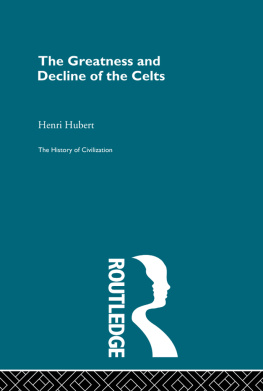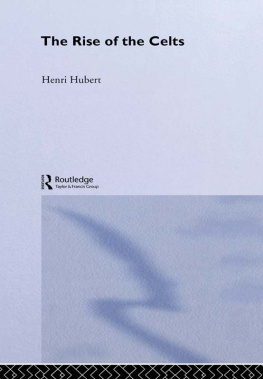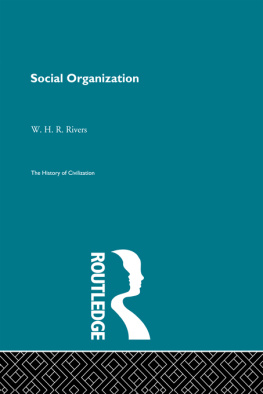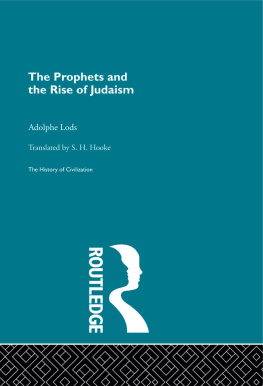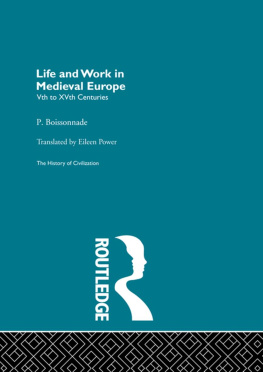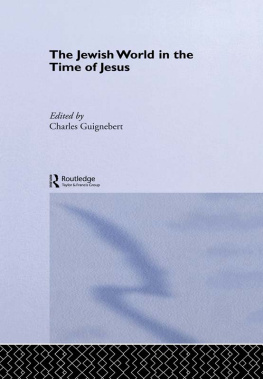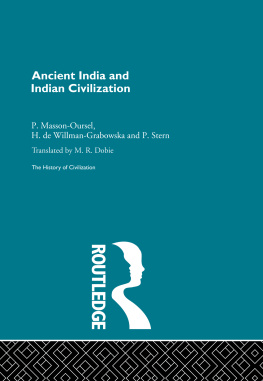
THE HISTORY OF CIVILIZATION
General Editor C. K. Ogden
The History of Civilization is a landmark in early twentieth Century publishing. The aim of the general editor, C. K. Ogden, was to summarise in one comprehensive synthesis the most recent findings and theories of historians, anthropologists, archaeologists, sociologists and all conscientious students of civilization. The History, which includes titles in the French series LEvolution de lHumanit, was published at a formative time in the development of the social sciences, and during a period of significant historical discoveries.
A list of the titles in the series can be found at the end of this book.

First published in 1934 by Routledge, Trench, Trubner
Reprinted in 1996,1999 by Routledge
2 Park Square, Milton Park,
Abingdon, Oxon, OX14 4RN
&
711 Third Avenue, New York, NY 10017
Routledge is an imprint of the Taylor & Francis Group, an informa business
First issued in paperback 2013
Transferred to Digital Printing 2008
1996 Routledge
All rights reserved. No part of this book may be reprinted or utilized in any form or by any means electronic, mechanical, or other means, now known or hereafter invented, including photocopying and recording, in any information storage or retrieval system, without permission in writing from the publishers.
British Cataloguing in Publication Data
ISBN13: 978-0-415-15602-8 (hbk)
ISBN13: 978-0-415-84876-3 (pbk)
eISBN: 978-1-136-20299-5
Publishers Note
The publisher has gone to great lengths to ensure the quality of this reprint but points out that some imperfections in the original may be apparent
CONTENTS
THE CELTIC GENIUS
I HAVE already explained and justified the division of Huberts work on the Celts into two volumes.
With the present volume we find ourselves in the La Tne period. It begins by describing a new expansion, then a retreat, the florescence and decline of the Celtic world.
It is about 500 B.C. that the La Tne civilization appears with an increase of the population, which descends from the heights into the plains, an advance in technical processes, and a growth of prosperity which give rise to the great historical expeditions. The movements which now take place are different from those described in the previous volume, about which we have little direct information. From definite evidence it can be seen that operations now assume a co-ordinated, concerted, and, one might say, political character (p. 18), and that is a great novelty among the Celts. All round the circumference of the Celtic world this activity manifests itselffirst in Italy, the Danube Valley, and Britain, and then in Eastern Europe and Asia Minor, the south-west of France, and even in Spain. They found settlements, or rather the previous inhabitants mingle with them, and they contribute and receive in varying proportions. But what the advanced bodies receivefor example, the idea of a political life in Italy, and intellectual and moral culture in Greecewill benefit the whole Celtic world, doubtless in different degrees. The Celts enter the history of the world (p. 32). Unsettled and unruly elements, bands of barbarians, great companies, will still break in ; the energy, courage, and roving spirit of the Celts will make some of them mercenaries in great demand, free-lances scattered among many peoples. Mercenary service was a regular Celtic industry, and a well paid one (pp. 64, 66, 90). But the mass of the race is settled, and the Celts are involved in the politics and economics of the whole world. Being both inventive and receptive, they are agents for the unification and progress of mankind. There are, it is true, Gallic Celts and British Celts, Celts of the Danube and Germany and Italy ; but a Celtic civilization has grown up which is comparatively homogeneous and comparatively native in its character.
From the end of the third century onwards the Celts are in conflict with Rome on every side. Their civilization stands face to face with a different, and in some respects higher, civilization, while from behind they are pressed by a people of lower culture, the Germans, with whom, as we know, they have a real intimacy (p. 93). The more active the civilizing and political influence of the Celts is in Germany, the harder they will be pressed by their neighbours, to be finally driven back. There was a twofold process a process of assimilation of the German world on the one hand, but on the other, as a result of that very assimilation, a process of penetration by the Germans into the Celtic world (p. 103). The Cimbri, Teutones, Suevi were Celticized Germans, mixed with Celts to a various extent.
Gradually the Celts are driven back on themselves. The Rhine becomes the frontier of the western Celts. In the course of their disturbed history main peoples and subordinate groups have parted, reunited, mixed, and passed one another. Now they are in what are almost their final positions. The Celtic world has assumed what Hubert strikingly describes as the face under which it was last known to antiquity, and it was a face of death . At this moment its features appear in broad daylight and that thanks to its conqueror (p. 119). The Romans, and Csar above all, help us greatly to picture them.
Hubert, in the part of his work describing the civilization of the Celts, begins by studying their social structure. As a sociologist, he compares one Celtic society with another, he compares them with other Indo-European societies and points out their common characteristics, and he looks in them for survivals of primitive organizations, earlier than the Indo-European societies, traces of clan life (pp. 190, 198, 201). For this task he gets valuable information from Irish and Welsh sources, his use of which he justifies. In short, he is concerned with the evolution of society as such, and, if he draws upon his general sociological knowledge for the study of the Celts, he makes repayment in bringing interesting data and confirmations to sociology.
In doing this Hubert followed his natural inclination ; he was applying and reinforcing the knowledge born of his wide interest But he was also adhering to the programme of this series. One feature of this synthesis, lEvolution de lHumanit, is that it presents sociology and history in intimate association. Not only do we, in the case of each human group, pay due attention to the study of institutions, but we endeavour to determine the role of society as society, to make plain the relations of the social and the individual. Our readers know this ; and they also know that, on account either of the subject or of the bent of the author, some volumes more than others enable us to set the social in its place in history and to reflect on problems of a theoretical nature.
Huberts work, in its contribution to the study of the Celtic societies and of society in general, raises some most interesting problems.
Although he speaks here and there of Celtic nations and seems in one passage to credit the Celts with a national consciousness, when no central power has asserted itself, when there is no unifying state.
Of Celtic civilization, on the other hand, we can speak, for the various branches of the Celts had a real sense of oneness, a family likeness, a common language, and we know that language is among the most typical phenomena of a culture (p
Next page
